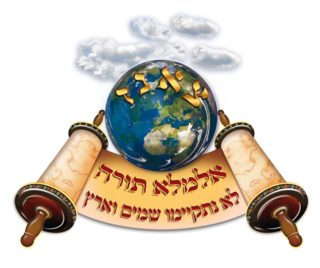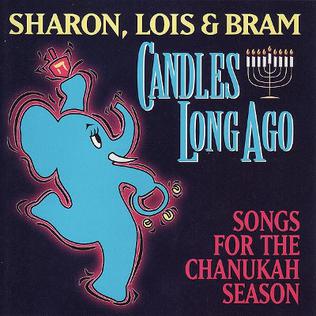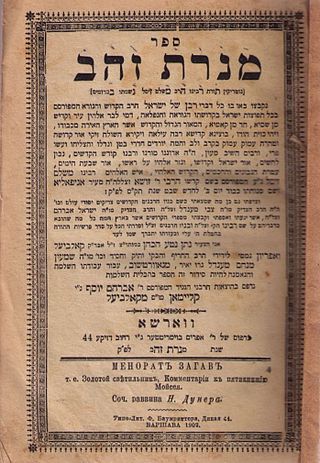Related Research Articles

A fiddle is a bowed string musical instrument, most often a violin. It is a colloquial term for the violin, used by players in all genres, including classical music. Although in many cases violins and fiddles are essentially synonymous, the style of the music played may determine specific construction differences between fiddles and classical violins. For example, fiddles may optionally be set up with a bridge with a flatter arch to reduce the range of bow-arm motion needed for techniques such as the double shuffle, a form of bariolage involving rapid alternation between pairs of adjacent strings. To produce a "brighter" tone than the deep tones of gut or synthetic core strings, fiddlers often use steel strings. The fiddle is part of many traditional (folk) styles, which are typically aural traditions—taught "by ear" rather than via written music.

Fiddler on the Roof is a musical with music by Jerry Bock, lyrics by Sheldon Harnick, and book by Joseph Stein, set in the Pale of Settlement of Imperial Russia in or around 1905. It is based on Tevye and his Daughters and other tales by Sholem Aleichem. The story centers on Tevye, a milkman in the village of Anatevka, who attempts to maintain his Jewish religious and cultural traditions as outside influences encroach upon his family's lives. He must cope with the strong-willed actions of his three older daughters who wish to marry for love; their choices of husbands are successively less palatable for Tevye. An edict of the tsar eventually evicts the Jews from their village.

"Old King Cole" is a British nursery rhyme first attested in 1708. Though there is much speculation about the identity of King Cole, it is unlikely that he can be identified reliably as any historical figure. It has a Roud Folk Song Index number of 1164. The poem describes a merry king who called for his pipe, bowl, and musicians, with the details varying among versions.
Elimelech Weisblum of Lizhensk was a rabbi and one of the founding Rebbes of the Hasidic movement. His hometown was Leżajsk near Rzeszów in Poland. He was part of the inner "Chevraya Kadisha" school of Dov Ber of Mezeritch, who became the decentralised, third generation leadership after the passing of Dov Ber in 1772.

Klausenburg, also known as Sanz-Klausenburg, is a Hasidic dynasty that originated in the Transylvanian city of Cluj-Napoca, today in Romania.
Yiddish grammar is the system of principles which govern the structure of the Yiddish language. This article describes the standard form laid out by YIVO while noting differences in significant dialects such as that of many contemporary Hasidim. As a Germanic language descended from Middle High German, Yiddish grammar is very similar to that of German, though it also has numerous linguistic innovations as well as grammatical features influenced by or borrowed from Hebrew, Aramaic, and various Slavic languages.

Tosh is a Hasidic dynasty originating in Nyirtass, Hungary. Today, it is based in Kiryas Tosh, Quebec, Canada, outside Boisbriand, Quebec, a suburb of Montreal, Quebec. The current leader is Grand Rabbi Elimelch Halevi Segal-Loewy, who succeeded his late father, Meshulim Feish Lowy, upon the latter's death on 12 August 2015. Tosher Hasidim have synagogues in the United States, in Boro Park, Williamsburg, Brooklyn, Kiryas Joel, and Monsey, as well as in Montreal and in London, England.

Kalonymus Kalman Shapira, was the Grand Rabbi of Piaseczno, Poland, who authored a number of works and was murdered by the Nazis during the Holocaust.

Yeshaya Steiner (Yiddish: ישעיה שטיינער; known as Reb Shaya'la of Kerestir (Kerestirer); Yiddish: ר' ישעיה'לה קערעסטירער) (1851 – 27 April 1925), was a Rebbe in the town of Bodrogkeresztúr (Kerestir) near Miskolc in Hungary.
Rabbi Elimelech Szapira of Grodzhisk (1823–1892) was the leading Hasidic rebbe of his time in Poland. He was a chosid (follower) of the Rizhiner Rebbe. After the death of his father, the Sorof of Mogelnica, he assumed leadership of the Grodzhisk chasidim, who eventually numbered in the tens of thousands.

Candles Long Ago is the 14th album by popular children's entertainers Sharon, Lois & Bram, originally released in 1993. It is the first, and only, Chanukah album produced by the trio. Unlike other Sharon, Lois & Bram albums, Candles Long Ago is a miniature album featuring only eleven songs, of which many appear on their previous album Candles, Snow & Mistletoe and one from their second album, Smorgasbord. O It was sold as part of the Sharon, Lois & Bram mini collection at a cheaper price than the trio's regular full-length albums.
"Oyfn Pripetshik" is a Yiddish song by M.M. Warshawsky (1848–1907). The song is about a rabbi teaching his young students the aleph-bet. By the end of the 19th century it was one of the most popular songs of the Jews of Central and Eastern Europe, and as such it is a major musical memory of pre-Holocaust Europe. The song is still sung in Jewish kindergartens.

Rabbi Meshulam Zusha of Hanipol or Meshulum Zusil of Anipoli (1718–1800), Reb Zusha, Reb Zushe, The Rebbe Reb Zusha was an early Hasidic luminary and well-known tzaddik. He was one of the great Hasidic Rebbes of the third generation and member of the academy circle of the Maggid of Mezeritch.
Shloyme Prizament (1889-1973), Jewish composer, actor in the Yiddish theater, and badkhn, son of Moyshe Prizament.

Old time fiddle is a genre of American folk music. "Old time fiddle tunes" derived from European folk dance tunes such as Jig, Reel, Breakdown, Schottische, Waltz, Two Step and Polka. The fiddle may be accompanied by banjo or other instruments but are nevertheless called "fiddle tunes". The genre traces from the colonization of North America by immigrants from England, France, Germany, Ireland, and Scotland. It is separate and distinct from traditions which it has influenced or which may in part have evolved from it, such as bluegrass, country blues, variants of western swing and country rock.
Quebec fiddle is a part of the Old time fiddle canon and is influential in New England and Northwest fiddle styles.
Yitzchak Rayz, better known by his pen name Moyshe Nadir was an American Yiddish language writer and satirist. Rayz was born in the town of Narayiv, in eastern Galicia, then Austro-Hungary. He died in 1943, in Woodstock, New York.
Dinov is the name of a Hasidic dynasty, descended from Rabbi Tzvi Elimelech Spira of Dinov, also called "the Bnei Yisaschar" after his popular work: בני יששכר [Bene Yiśaśkhar]. Dinov is the Yiddish name of Dynów, a town in southern Poland, in the historic region of Galicia.
Jan Bart was a prominent Jewish American cantor and Yiddish entertainer. His work combined the sounds of European Jewry and American musical tastes.

Benzion Hoffman, best known by the pen name Zivion, was a Yiddish writer, journalist, and political activist.
References
- ↑ Paul Kriwaczek, Yiddish Civilisation, Vintage Books, © 2005, p. 247: 'Der Rebbe Elimelech,' inspired by the children's song 'Old King Cole,' was the work of a Communist satirist... Isaac Reis, who went by the pen-name Moshe Nadir, Moses the Rare."
- ↑ https://folkways.si.edu/mark-olf/der-rebbe-elimelech-the-rabbi-elimelech/judaica/music/track/smithsonian